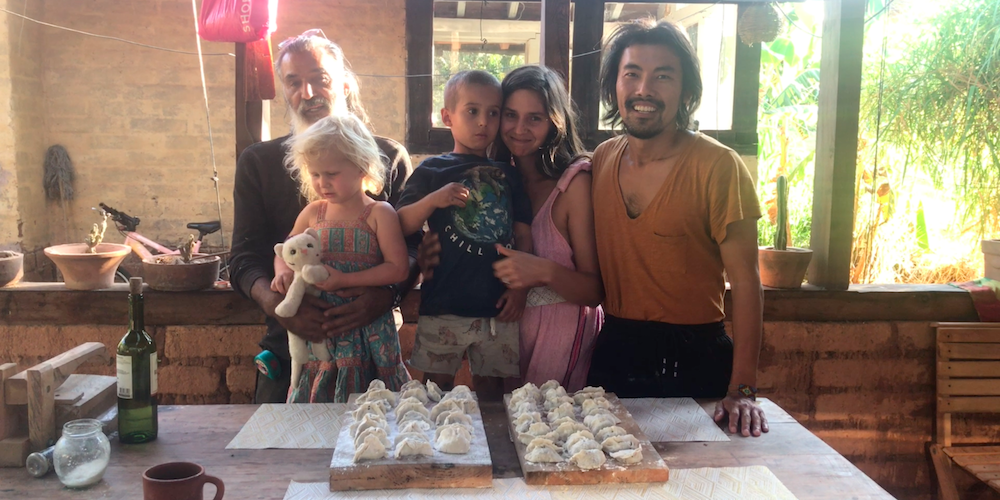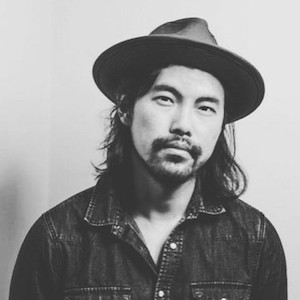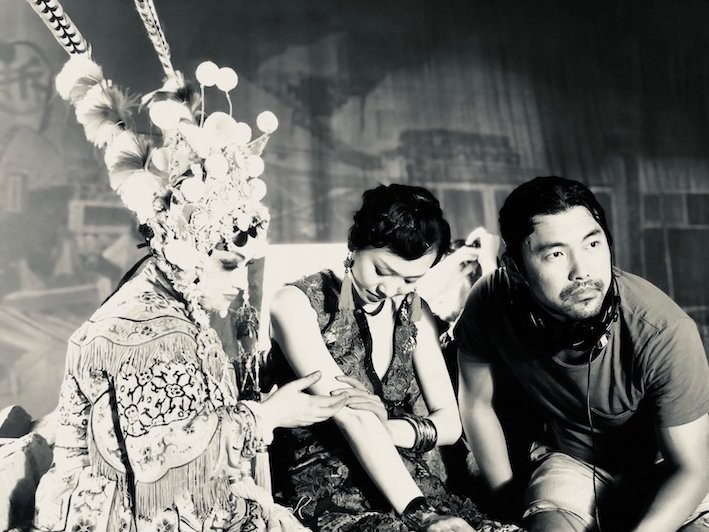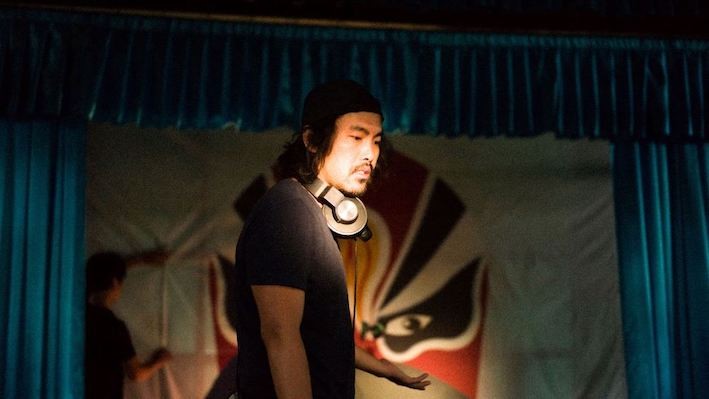On A Global Scale: Johnny Ma '16 and Facing the Unknown
On A Global Scale is a bi-weekly series about international co-productions by Columbia filmmakers.
Welcome to another edition of On A Global Scale. This bi-weekly series celebrates the international spirit of the Columbia University film program and the incredible global collaborations coming out of it.
When alumnus Johnny Ma '16 connects to our Zoom call a few minutes late he has an original apology. “When you live in the jungle for so long, you sort of forget how to survive in the city. I’m currently in Canada and forgot where I parked the car. But in return, I know my way around a woodshop now.” The filmmaker, who was born in Shanghai and moved to Canada at the age of ten, has spent most of the pandemic in a secluded area in Mexico. “I was in an interesting time in my life – I had made two feature films in China. Recently, I was shifting my career and life focus back to North America and I was on my way to move to LA when I met the woman who is now my girlfriend in Mexico. And all of a sudden, I’m living in the jungle.”
It was during his time there that he was approached by filmmaker Pablo Larraín to contribute a short film to his project Homemade which consists of multiple short pieces by acclaimed filmmakers such as Larraín, Paolo Sorrentino, Maggie Gyllenhaal and Rachel Morrison. In the series of shorts, confined at home as a consequence of the COVID-19 pandemic, filmmakers created personal, moving stories that capture the shared experience of life in quarantine. The result is now available to watch on Netflix.
“I didn’t have much time to make it,” Ma says. “The only limitation they gave me was to do it in Chinese. They came to me a month before the delivery date and I procrastinated for a while because I needed to find the right story. Because of where I was living, I was so far away from anything. I didn’t realize until after I agreed to do it that this would mean I would have to be on screen. And I would also not be able to hold the camera. I didn’t have a crew, no sound. At one point, I was considering sending the offer back because I was afraid. And then I thought: ‘Why am I afraid of this?’”
Ma has an interesting relationship to the concept of fear. To him, it’s a challenge, a drive. In a way fear is what drove him to follow his dream of becoming a filmmaker. “It felt like a very distant dream. I guess in some way I thought I’d get into film, but not until I was 35 and had some money. I had two careers before, I worked in acquisition for a big financing firm and then I worked in fashion, in a factory of a thousand people in China. Things changed when I got sick in India. The doctor told me I had a 25% chance to live, so it was a near-death experience that made me question what I was doing that was of substance and represents who I am,” he says. “I thought if I had died at that moment people would’ve said he’s good at his job and making money, but not for himself. I enjoyed writing and taking photographs. At that moment I thought: Even if my career was as a gaffer, I wanted to do something memorable. If I could work on a film like the Raging Bull of my time, I would be happy.”
The result of Ma taking a step into the unknown—he entered graduate school at Columbia. He knew it was an all or nothing decision. “I had to be strategic at Columbia. I thought going there would get someone very important to read my script and I would have this path to maybe get a film to Sundance or get into the Sundance lab.”
It paid off for Ma. He did in fact get into the Sundance lab, but when he went to China to pursue his first feature “these accolades meant nothing!” Still, Ma prevailed. He now has made two features: Old Stone, which won Best Canadian First Feature Film at the Toronto Film Festival in 2016 and To Live To Sing, which premiered at the Directors’ Fortnight in Cannes in 2019. Now Ma is set to find his path on the North American market, a conscious decision born out of the fact that he does not want to be defined as a Chinese or Canadian filmmaker. “When I got into film it was because I enjoyed writing and taking pictures along my travels. So I would certainly hate to be stuck in a location just because it’s supposed to be the only place where I can make movies. I wanted to go anywhere, cross cultures. For me it wasn’t just about what stories I wanted to tell but also what life I wanted to live.”
This mindset was already present when Ma and three of his friends took the 8-12 season at Columbia as an incentive to move to Brazil for three months and shoot their short films there. “I shot it in Portuguese and that clarified what I wanted to do in the future. It’s about how you approach finding your voice. Later, I was close to making a film in Berlin. I found a story close to my heart and I could tell it from another culture point of view. And now I’m preparing a film set in Mexico that would be the most personal film that I ever made. If I make my films as genuine as I can and there’s an audience for them that’s great.”
Ma is now a much more experienced filmmaker but to him, that doesn’t mean that the fear ever fades, as he recently discovered once again in the making of his short film. “It was just as difficult as making a feature. I had an iPhone 6. Netflix was going to send me a new phone, but they couldn’t because of how secluded I was. The only time I could shoot was between 6:00 and 7:00 am before the kids woke up. Only then could I get my girlfriend to hold the camera for me.” But Ma accepted these struggles. “At that time, I thought more people would see this short film than my feature films. I had to make it good because I knew it was probably going to be the first work people were going to see from me.”
The circumstances of this shoot reminded Ma of making a film at Columbia. “All of a sudden there’s the limitation of making something for no to little money. The realization that I have nothing to hide behind and it really came down to the emotional story.” Ma believes this is what young filmmakers truly need to understand. “When you have nothing—what would you say? What will take you to the next level? It’s not pretty camera work, it’s about finding something unique that has never been seen. Hopefully what will come out of the pandemic is films that are unique due to the limitation and change of perspective the last year has given us.”
And what’s that for Ma himself? He has many projects in development, a process he describes as much different than his experience in China where he could only really drive one project at a time due to the difficulty of getting it made. “I don’t know when my next film is going to be. I think people who are much further in their career have the same fear. You do what you can do. The anxiety of not knowing was something that was so hard to deal with while at school and making my first feature.”
But Ma is a person who likes taking chances. He faces challenges head on as he proved once more with his recent work. “At one point I said to my girlfriend: ‘This could be the biggest disaster of my career.’ That was the moment I knew I had to make it.”



